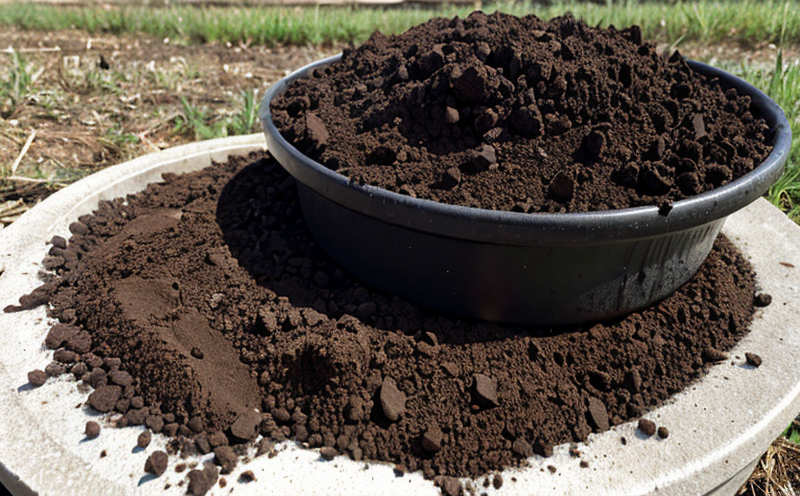ISO 17294 Metals in Leachate by ICP-MS
The ISO 17294 standard provides a robust framework for quantifying metals in leachate samples using Inductively Coupled Plasma Mass Spectrometry (ICP-MS). This service is essential for waste management and recycling testing, ensuring that the leachate from solid waste facilities meets stringent environmental standards.
Leachate, which is the liquid produced by percolating through a landfill or other waste containment facility, often contains various metals. The presence of these metals can have significant impacts on water quality if not properly managed. ISO 17294 provides a standardized method to analyze these metals accurately and reliably.
ICP-MS is chosen for its high sensitivity, low detection limits, and the ability to handle complex matrix samples. This makes it particularly suitable for leachate analysis, where trace metal concentrations can vary widely. The ICP-MS instrument used in our testing is capable of detecting metals at parts per billion (ppb) levels, ensuring precise measurements.
The process starts with sample collection and preparation. Leachate samples are typically collected from landfills or recycling facilities and transported to our laboratory for analysis. Upon receipt, the samples undergo rigorous quality control checks before being prepared for testing. This involves dilution if necessary, to ensure that the metal concentrations fall within the linear range of the ICP-MS instrument.
Once prepared, the leachate samples are introduced into the ICP-MS instrument. The sample is atomized and ionized in the plasma torch, then separated by mass spectrometry. The resulting data points are analyzed to determine the concentration of each metal species present in the leachate.
The accuracy and reliability of this method are further enhanced by our adherence to ISO 17294, which specifies detailed procedural guidelines. These include specific calibration procedures, quality control measures, and validation protocols. Our team ensures that every step of the process adheres strictly to these standards.
Understanding the metal content in leachate is crucial for environmental compliance, waste management planning, and recycling facility operations. This information helps regulatory bodies assess the potential impact on local water sources and ecosystems. For quality managers and compliance officers, this service ensures that your facility meets all regulatory requirements. R&D engineers can use these data points to refine processes and improve efficiency.
In addition to meeting regulatory standards, this testing also supports sustainable waste management practices by providing insights into the environmental impact of different waste materials. Procurement teams benefit from this information as they evaluate suppliers and choose materials that minimize environmental harm.
- Customer Impact: Ensures compliance with international standards, reduces legal risks, improves operational efficiency, and supports sustainable waste management practices.
The comprehensive approach we take ensures that our clients receive accurate, reliable, and actionable data. This not only helps in meeting regulatory requirements but also aids in making informed decisions for environmental protection and business sustainability.
Applied Standards
The ISO 17294 standard is widely recognized for its comprehensive approach to metal analysis in leachate samples using ICP-MS. This method has been validated by numerous international laboratories, ensuring consistency and reliability across different testing facilities.
The standard specifies the following key aspects:
- Sample preparation procedures
- Calibration methods
- Data processing techniques
- Quality control measures
- Safety protocols for handling hazardous materials
By adhering to these standards, we ensure that our testing results are consistent and comparable with other laboratories around the world. This is crucial for maintaining credibility in the global market and ensuring regulatory compliance.
The use of ICP-MS in conjunction with ISO 17294 provides a robust framework for metal analysis. The method allows for precise quantification of metals present at trace levels, which is critical for understanding the environmental impact of leachate from waste facilities.
Scope and Methodology
The scope of our ISO 17294 Metals in Leachate by ICP-MS service covers a wide range of metals commonly found in leachate samples. The primary metals tested include lead, cadmium, copper, zinc, nickel, chromium, arsenic, and mercury.
The methodology involves several key steps:
- Sample Collection: Samples are collected from various waste management facilities and transported to our laboratory under strict temperature control conditions.
- Preparation: Upon arrival, samples undergo thorough quality checks. Depending on the metal concentrations, dilution may be required to ensure accurate analysis.
- Instrumentation: The prepared samples are introduced into an ICP-MS instrument for analysis. The sample is atomized and ionized before being separated by mass spectrometry.
- Data Analysis: The resulting data points are analyzed using advanced software to determine the concentration of each metal species present in the leachate.
The accuracy of these results is further enhanced by our adherence to strict calibration procedures and quality control measures. These protocols ensure that every test adheres strictly to ISO 17294 standards, providing reliable data for decision-making.
Our team uses state-of-the-art ICP-MS equipment, which has been calibrated according to the latest international standards. This ensures consistent and accurate results across all tests. The equipment is regularly maintained and serviced by our dedicated technical staff to ensure optimal performance.





